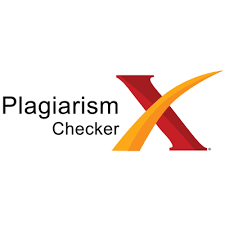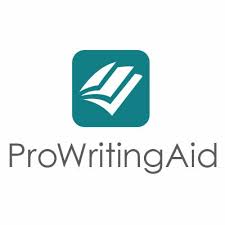- Focus and Scope
- Section Policies
- Peer Review Process
- Open Access Policy
- Archiving
- Publication Ethics
- Publication Frequency
- Plagiarism Checker
- User Rights
- References Management
- Lockss Publisher Manifest
Focus and Scope
JEE focus is a medium for dissemination of research results on education, teaching and learning in particular and general. The Scope of JEE publishes research articles in education, teaching and learning globally.
Section Policies
Articles
Peer Review Process
Review process is done by double blind review policy. All papers will be critically read by at least two anonymous reviewers, selected for their competences in the subject area of the paper. Acceptance of the paper will depend upon its scientific strength and suitability for the JEE. A paper may be accepted in its original form, subject to revision, or rejection.
The reviewers' (and editor's) suggestions will be conveyed to the author, who will then have an opportunity to revise the paper. A manuscript returned to an author for revision can be held for a maximum of four weeks.
All submitted papers will be checked for their originalities by Plagiarism Checker X software.
Open Access Policy
This journal provides immediate open access to its content on the principle that making research freely available to the public supports a greater global exchange of knowledge.
Archiving
This journal utilizes the LOCKSS system to create a distributed archiving system among participating libraries and permits those libraries to create permanent archives of the journal for purposes of preservation and restoration. More...
Publication Ethics
Ethical statements of publications and publications of malpractice
(Compiled using the Publishing ethical resource kit and in accordance with Elsevier's recommendations)
Guide to Ethics for Journal Publications
(This guide is based on Elsevier's policy)
JEE is an Educational, Teaching and Learning Journal designed and intended for lecturers, researchers, teachers, educators, students (S1, S2, and S3) who wish to publish their research reports or literature review articles.
JEE is a peer-reviewed journal publishing article for developing the Knowledge network in education, teaching, and learning. It is important to agree on the ethical standards of behavior expected for publishers: authors, journal editors, peer reviewers, publishers and the public.
Kopertis Region IV Jabar and Banten as the publisher of the Journal of Educational Experts (JEE) performs the trust duties of all stages of the publishing process and we are aware of our responsibilities ethically and others.
We are committed to ensuring that ads, reprints or other commercial revenue have no impact on editorial decisions. In addition, Kopertis IV Jabar and Banten and Editorial Board will assist in communication with other journals and/or publishers where this is useful and necessary.
Author's Duties
(This guide is based on Elsevier's policy)
Standard reporting
The author of the original research report should present an accurate report on the work performed as well as an objective discussion of its importance. The underlying data must be represented accurately on paper. The paper should contain enough detail and referrals to allow others to copy the work. False or intentionally inaccurate statements are unethical and unacceptable behavior. Professional review and article publications should also be accurate and objective, and editorial opinions should be clearly identified.
Data access and retention
Authors may be required to provide raw data in connection with papers for editorial reviews, and should be prepared to provide public access to the data, if possible, and should, in any case, be prepared to keep the data for a reasonable time. After publication
Originality and plagiarism
Authors must ensure that they have written the original work entirely, and if the author has used the work and/or the words of others that have been quoted or quoted appropriately. Plagiarism takes many forms, ranging from issuing another paper as the author's own paper to copy or paraphrase most other papers (without attribution), to claim the results of research done by others. Plagiarism in all its forms is unethical and unacceptable publishing behavior.
Duplicate, redundant or concurrent publications
A writer should not generally publish a manuscript that essentially describes the same research in more than one major journal or publication. Sending the same script to more than one journal simultaneously is unethical and unacceptable publishing behavior. In general, an author should not consider in other previously published journals. Publication of some types of articles (eg clinical guidelines, translations) in more than one journal may sometimes be justified, provided certain conditions are met. The journal authors and editors must approve secondary publications, which should reflect the same data and interpretations of the main document. Main references should be cited in secondary publications.
Recognition of sources
Correct recognition of the work of others must always be given. The author should cite publications that have been influential in determining the nature of the work reported. Personally-acquired information, such as in conversations, correspondence, or discussions with third parties, may not be used or published without written permission from the source. Information obtained in the course of confidential services, such as referee manuscripts or grant applications, shall not be used without explicit written permission from the authors of the works involved in the service.
Paper articles
Authorship should be limited to those who have made a significant contribution to the conception, design, implementation, or interpretation of reported research. Anyone who has made a significant contribution must be registered as a coauthor. If there are others who have participated in certain substantive aspects of the research project, they must be recognized or registered as contributors. The appropriate author must ensure that all appropriate co-authors and no inappropriate coauthors are included on the paper and that all co-authors have reviewed and approved the final version of the paper and have approved the submission for publication.
Hazards and human or animal subjects
If the work involves chemicals, procedures or equipment that have an unusual hazard inherent in their use, the authors should clearly identify this in the manuscript. If the work involves the use of animal or human subjects, the author shall ensure that the manuscript contains a statement that all procedures are performed in accordance with relevant legislative and institutional rules and that the appropriate institutional committee has approved them. The author must include a statement in the manuscript that informed consent was obtained from experiments with human subjects. The privacy rights of human subjects should always be taken care of.
Disclosure and conflict of interest
All authors must disclose in their text any conflicts of financial interest or other conflicts of interest that may be interpreted to influence the outcome or interpretation of their manuscripts. All sources of financial support for the project should be disclosed. Examples of potential conflicts of interest to be disclosed include employment, consultation, share ownership, honorarium, paid expert testimony, patent/registration application, and grants or other funds.
Duties of the Editorial Board
(These guidelines are based on Elsevier's policy and COPE Best Practices Guidelines for Journal Editors)
Publication Decision
Semantic Journal editors reviewed by peers are responsible for determining which articles are submitted to the journal should be published. The validation of the work in question and its importance for the researcher and the reader should always encourage such a decision. The editor may be guided by the editorial policy of the journalist and limited by applicable legal requirements prior to enactment, related to defamation, copyright infringement, and plagiarism. The editor can speak with editors and other reviewers to make this decision.
Fair game
An editor should evaluate manuscripts for their intellectual content irrespective of race, sex, sexual orientation, religious belief, ethnic origin, citizenship or political philosophy of the author.
Confidentiality
The editor and any editorial staff shall not disclose any information about manuscripts submitted to anyone other than potential authors, reviewers, reviewers, editorial advisors, and other publishers.
Disclosure and conflict of interest
Unpublished material disclosed in the submitted manuscript shall not be used in the editor's own research without the written consent of the author. Special information or ideas obtained through peer review should be kept confidential and not used for personal gain. Editors should advise themselves (for example, have a joint editor, associate editor or another editorial board member to review and consider) from considering manuscripts in which they have a conflict of interest due to a competitive, collaborative, or relationship, relationship or relation One author, company, or (possibly) an institution connected with a newspaper. The editor shall require all contributors to disclose relevant competing interests and issue corrections if competing interests are disclosed upon publication. If necessary, other actions to be taken, such as publication of retraction or expression of concern.
Involvement and cooperation in the investigation
An editor must take reasonably responsive action when ethical complaints are filed regarding submitted manuscripts or published papers, along with publishers (or communities). Such steps generally involve contacting the screenwriter or paper and providing consideration in relation to the complaint or claim being submitted, but may also include further communication to the relevant research institutes and bodies, and if such complaints are applied, the publication of Corrections, retractions, expressions Concerns, or other records, which may be relevant. Any unethical conduct of public behavior should be observed, even if it is found many years after it is published.
Viewer's Tasks
(These guidelines are based on Elsevier's policy and COPE Best Practices Guidelines for Journal Editors)
Contribution to editorial decisions
Peer review helps editors in making editorial decisions and through editorial communications with authors can also assist authors in repairing papers. Peer review is an essential component of formal scientific communication and lies at the core of scientific methods.
Accuracy
Any selected referee who feels ineligible to review the research reported in the manuscript or know that his short review will become unlikely to have to notify the editor and permission of the review process.
Confidentiality
Any manuscript received for review should be treated as a confidential document. They should not be shown or discussed with anyone else except those authorized by the editor.
Standards of objectivity
Reviews should be done objectively. The author's personal criticism is not right. Referees should express their views clearly with supporting arguments.
Recognition of sources
The reviewer should identify relevant works of publications that have not been quoted by the author. Any statement that a previously reported observation, derivation, or argument must be accompanied by the relevant quotation. A reviewer should also call the editor's attention to substantial or overlapping equality between the manuscript being considered and other publication papers with personal knowledge.
Disclosure and conflict of interest
Unpublished material disclosed in submitted manuscripts may not be used in the reviewer's own research without the written consent of the author. Special information or ideas obtained through peer review should be kept confidential and not used for personal gain. The reviewer should not regard manuscripts in manPublication Frequency
Journal of Educational Experts (JEE) For the year 2018, Volume 1, Number 1 is scheduled for publication January.
JEE is electronically published via journal website (http://journal.kopertis-4.org/index.php/jee).
JEE is published by Kopertis Region IV Jabar and Banten,
Commencement of publication: January 2018Plagiarism Checker
All submitted papers will be checked for their originalities by Plagiarism Checker X software.
User Rights
All articles published Open Access will be immediately and permanently free for everyone to read and download. We are continuously working with our author communities to select the best choice of license options, currently being defined for this journal as follows:
Creative Commons Attribution - Share Alike 4.0 Internasional License (CC BY-SA)
References Management
All submitted papers in JEE are suggested using Reference management applications such as Mendeley, Zotero or EndNote.
Lockss Publisher Manifest
This journal utilizes the LOCKSS system to create a distributed archiving system among participating libraries and permits those libraries to create permanent archives of the journal for purposes of preservation and restoration. More...








